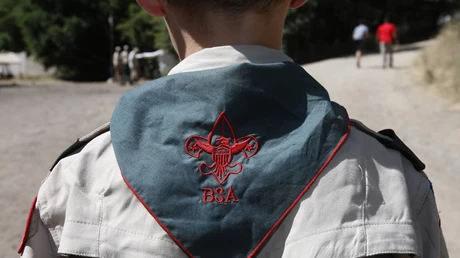Amid the Boy Scouts of America’s complex bankruptcy case, there is worsening friction between the BSA and the major religious groups that help it run thousands of scout units. At issue: the churches’ fears that an eventual settlement—while protecting the BSA from future sex abuse lawsuits—could leave many churches unprotected.
The Boy Scouts sought bankruptcy protection in February 2020 in an effort to halt individual lawsuits and create a huge compensation fund for thousands of men who say they were molested as youngsters by scoutmasters or other leaders. At the time, the national organization estimated it might face 5,000 cases; it now faces 82,500.
In July, the BSA proposed an $850 million deal that would bar further lawsuits against it and its local councils. The deal did not cover the more than 40,000 organizations that have charters with the BSA to sponsor scout units, including many churches from major religious denominations that are now questioning their future involvement in scouting.
The United Methodist Church—which says up to 5,000 of its US congregations could be affected by future lawsuits—recently advised those churches not to extend their charters with the BSA beyond the end of this year. The UMC said these congregations were “disappointed and very concerned” that they weren’t included in the July deal.
Everett Cygal, a lawyer for Catholic churches monitoring the case, said it is unfair that parishes now face liability “solely as a result of misconduct by Boy Scout troop leaders who frequently had no connection to the parish.”
“Scouting can only be delivered with help of their chartered organizations,” Cygal told The Associated Press. …
News brought to you by Christianity Today




